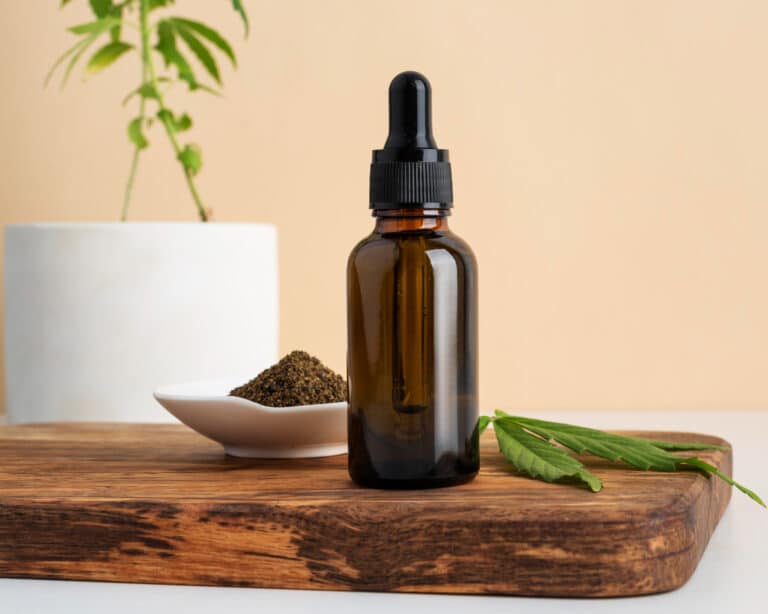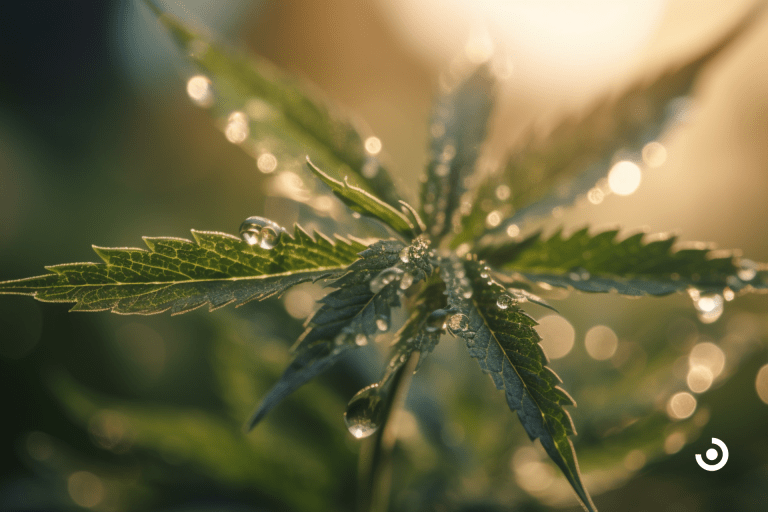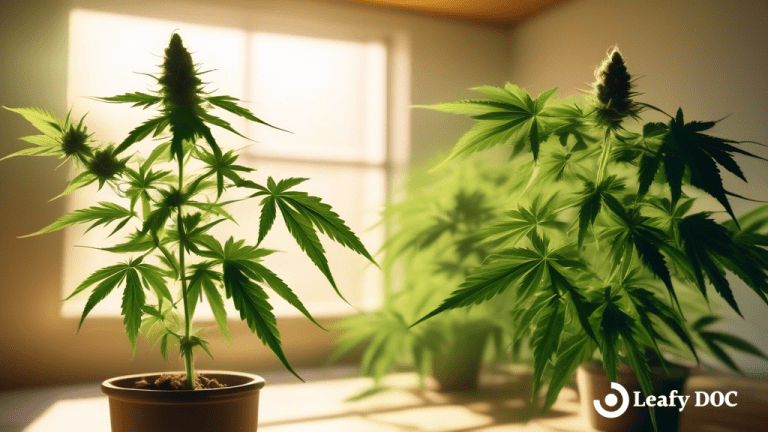Bipolar Disorder
Can medical marijuana help patients with bipolar disorder? Find out below.
What is Bipolar Disorder?
Bipolar disorder, formerly known as manic depression, is a mental condition that causes severe mood swings, including extreme emotional highs followed by bouts of depression. Depression can make you feel sad, hopeless, and overall disinterested in life and things that typically bring pleasure; when your mood shifts to mania or hypomania, patients can experience euphoria, high energy levels, and significant irritability. Mood swings can affect sleep, daily activity, judgment, and behavior and can bring on brain fog.
These episodes can occur rarely or many times a year, and while many people experience emotional symptoms between episodes, some may not. Bipolar disorder is a lifelong condition, but patients can manage it with a treatment plan that usually includes medications and psychotherapy.
What causes it?
While the exact cause of the bipolar disorder is unknown, many experts believe several factors can make a person more likely to develop the condition. These factors include a combination of physical, environmental, and social aspects.
Bipolar disorder is believed to result from chemical imbalances in the brain. Neurotransmitters (noradrenaline, serotonin, and dopamine) are the chemicals responsible for controlling the brain’s functions.
If there is an imbalance in one or more neurotransmitters, a person can develop bipolar disorder symptoms. For example, episodes of mania may occur when noradrenaline levels are too high, and bouts of depression may occur from noradrenaline levels becoming lower than usual.
Bipolar disorder can also be linked to genetics. Family members of someone with bipolar disorder have an increased risk of developing the condition, but there is no identifiable gene responsible for bipolar disorder. Instead, genetic and environmental factors act more like triggers.
Other triggers can include:
- relationship breakup
- emotional, physical, or sexual abuse
- loss of a family member or loved one
- physical illness
- sleep issues
- extreme daily stress (money, career, family, etc.)
Types of Bipolar Disorder & Symptoms
Bipolar I Disorder
Bipolar I disorder is diagnosed when a patient is experiencing a manic episode that includes an extreme increase in energy that can cause feelings of euphoria or irritability. Some people with bipolar I disorder also experience episodes of depression following the bouts of energy.
Manic Episode
A manic episode happens at least once a week when a person is exceptionally high-spirited or irritable, has more energy than usual, and experiences at least three of the following behavioral changes:
- Decreased desire for sleep
- Increased or faster speech
- Uncontrollable racing thoughts
- Distractibility
- Restlessness
- Increased reckless/risky behavior
- Some people having manic episodes also experience psychotic features-disorganized thinking, false beliefs, and hallucinations.
Hypomanic Episode
A hypomanic episode has less severe manic episodes that last four days rather than a week. Hypomanic symptoms don’t typically result in significant problems in daily functioning.
Major Depressive Episode
A major depressive episode occurs for at least two weeks in which a patient has five of these symptoms:
- Intense sadness or despair
- Loss of interest in daily joys
- Feelings of worthlessness
- Extreme Fatigue
- Increased/decreased sleep
- Increased/decreased appetite
- Restlessness
- slowed speech or movement.
- Difficulty concentrating
- Frequent suicidal thoughts
Bipolar II Disorder
A bipolar II disorder diagnosis requires a patient to have at least one major depressive and hypomanic episode and return to everyday life between the occurrences. People with bipolar II disorder regularly seek treatment due to their first depressive episode since hypomanic episodes can be pleasurable or increase performance.
Bipolar II disorder frequently occurs following other mental illnesses, such as anxiety or substance use disease, which can worsen symptoms of depression or hypomania.
Cyclothymic Disorder
Cyclothymic disorder is a mild form of bipolar disorder involving frequent mood swings. People with cyclothymia experience emotional highs and lows with less extreme symptoms than bipolar I or II disorder.
Symptoms of Cyclothymic disorder include the following:
- Many periods of hypomanic and depressive symptoms occurring for at least two years, but the symptoms don’t point to a hypomanic or depressive episode.
- During the two years, the mood changes last for half the time and occur every two months at least.
Bipolar Disorder Statistics
Based on diagnostic interview data from National Comorbidity Survey Replication (NCS-R):
- Around 2.8 percent of U.S. adults had the bipolar disorder at the time of the survey
- The prevalence of bipolar disorder was similar for males and females.
- Approximately 4.4 percent of U.S. adults experience bipolar disorder in their lives.
- 82.9 percent of people with bipolar disorder had a severe impairment, the highest percentage among mood disorders.
- About 2.9 percent of adolescents had bipolar disorder at the time of the survey.
- The prevalence of bipolar disorder among adolescents was higher for females than males.
Treatments for Bipolar Disorder
Alternative treatments include yoga, meditation, exercise, and acupuncture. These holistic therapies are popular for people looking to increase blood flow, change their lifestyles and build healthier habits. For some, they can assist in coping with mental disorders and relieve anxiety symptoms and physical issues like muscle spasms. Some alternative solutions combined with THC or medication or meeting with a therapist could successfully decrease anxiety and build a healthy, happy, and productive lifestyle.
Can Medical Cannabis Help with Bipolar Disorder?
While there is not enough conclusive evidence from research, a few recent studies show medical cannabis (specifically CBD) as being able to help relieve some symptoms of bipolar disorder, including insomnia, anxiety, and mood swings.
Recent Studies
A report by the University of Washington highlights the effects of medical marijuana on those with bipolar disorder. They concluded that while bipolar disorder is not yet a qualifying condition for medical cannabis treatment, reports suggest many individuals are using medical cannabis to treat the disease.
Anxiety is common in all types of Bipolar Disorder; some feel that THC and CBD can alleviate anxiety symptoms in those with the condition. Like anxiety, insomnia is also a side effect of high and low mood swings. Research has shown CBD to affect different forms of anxiety disorders positively. It has been shown to reduce stress. CBD benefits general anxiety disorder and other severe anxiety conditions, including post-traumatic stress disorder, obsessive-compulsive disorder, and social anxiety disorder. Studies in mice and rats showed lower heart rates and less stress with CBD.
A recent study that used a simulated public speaking test to show anxiety levels in speakers showed significant promise that CBD can help reduce fears and anxiety associated with speaking in front of a group. Continued research is being done to see how CBD can manage various forms of stress.
CBD has been shown in research studies to help people fall asleep, stay asleep, and show significant improvement with sleep problems. The endocannabinoid system has a part in maintaining several body functions, including sleep and regulation of circadian rhythms. CBD oil can offer a night of better sleep and, thus, a healthy lifestyle to follow.
Last Updated: June 14, 2024
Get Your Medical Card
Connect with a licensed physician online in minutes
Table of Contents
Keep Reading
-
Can you Overdose on CBD?
CBD is a popular natural remedy used for many common ailments. But can you overdose on CBD? Find out the risks and side effects of taking too much CBD.
-
Cannabis As An Alternative Medicine: A Comprehensive Guide
Unlock the Healing Potential of Cannabis as an Alternative Medicine – Your Ultimate Guide to Natural Relief. Click here to explore the benefits and start your journey towards a healthier, happier life!
-
Indica Vs Sativa: Which Is Better For Relaxation?
Looking to unwind and destress? Learn which strain, Indica or Sativa, is best for relaxation. Click now to discover the ultimate relaxation strain and find your perfect chill buddy!



